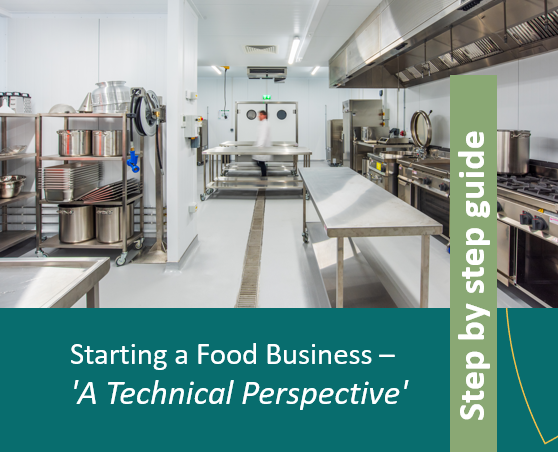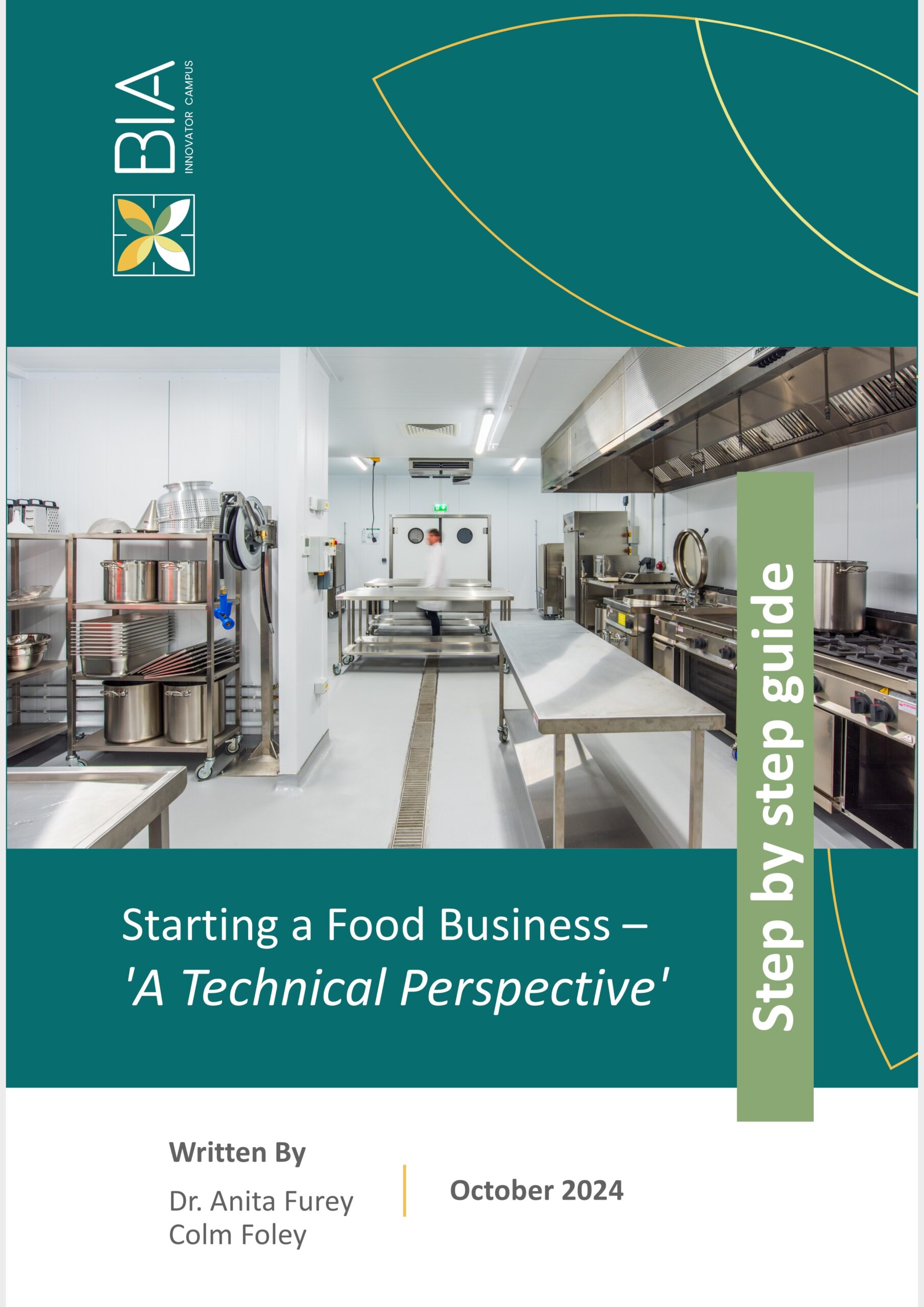Starting a food business can be both exciting and daunting, especially when navigating the technical aspects that ensure your product is safe, market-ready, and compliant with regulations.
This step-by-step guide, ‘How to Start a Food Business: A Technical Perspective,’ aims to provide you with a comprehensive overview, from initial market research to food safety and legal requirements.
Developed by our technical team here at BIA, this guide breaks down complex processes into manageable steps, helping budding food entrepreneurs take their product from concept to reality while minimizing risks. Whether you’re refining your HACCP plan or preparing for regulatory approvals, this guide offers practical, industry-backed insights to make your food business journey smoother and more successful.
Key areas of this guide
1. BIA Innovator Campus & The Technical Team
– Introduction to BIA Innovator Campus and its mission
– Overview of the services offered by the campus to support food entrepreneurs
2. Market Research, Prototypes, and Costs
– Importance of conducting thorough market research to assess the demand for your product
– Developing and testing product prototypes
– Key costs associated with starting a food business, including production, packaging, branding, and regulatory requirements
3. Food Safety – A Legal Requirement
– Overview of food safety laws and regulations in Ireland
– Responsibilities of a food business operator to ensure food is safe for consumption
– Resources for understanding food hygiene and safety protocols
4. Competent Authority – Registration or Approval?
– Steps to register your food business with the appropriate Competent Authority
– Differences between registration and approval for businesses handling food of animal origin
– Links to resources for registering with the Health Service Executive (HSE) and other regulatory bodies
5. HACCP – Hazard Analysis & Critical Control Points
– Explanation of HACCP and its significance in food safety management
– Steps for developing a HACCP-based system to control food safety hazards
– Benefits of HACCP procedures in preventing foodborne illness and improving product quality
6. Pre-requisite Programme (PRP)
– Essential hygiene and safety conditions for operating a food business
– PRP components such as facility cleanliness, employee hygiene, pest control, and waste management
– Importance of establishing PRP to create a safe food production environment
7. Food Safety Standards
– Overview of national and international food safety standards (e.g., ISO 22000, BRCGS)
– Compliance with I.S. standards for hygiene in catering, food processing, and retailing sectors
– Useful resources and websites for fur ther information on food safety standard
Download Our Starting a Food Business Guide
Starting a Food Business – ‘A Technical Perspective’
Written By: Dr. Anita Furey & Colm Foley
The hope is that this guide will help food entrepreneurs gain a strong understanding of both the practical and regulatory steps necessary to start a food business, ensuring they are well-prepared to succeed in this competitive industry.
Written by: Dr. Anita Furey & Colm Foley

